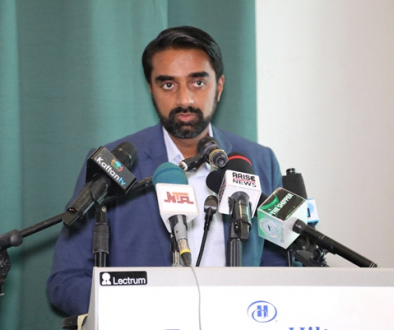NSE and CBI launch Nigeria’s Corporate Governance Rating System (CGRS)
In a well-attended event with over 500 people, the Convention on Business Integrity and the Nigerian Stock Exchange launched the corporate governance rating system. (CGRS) on November 3 at Intercontinental Hotel, Lagos. At the event, CGRS, Nigeria’s flagship rating system was introduced to various market players including domestic and international investors, listed companies, international organizations and the general public.
Oscar Onyeama, CEO of the Nigerian Stock Exchange spoke on how the CGRS would bring about greater transparency and trust in the capital market. He also highlighted that CGRS would form the basis of a planned premium board to be launched in January 2015.
The Nigerian Minister of Finance, Ngozi Okonjo-Iweala and many international experts in the field of anti-corruption including Peter Eigen and Jermyn Brooks endorsed the CGRS. Africa’s richest man Aliko Dangote, was present at the launch and endorsed the CGRS and congratulated the NSE on this remarkable achievement. The current president of the Nigeria Stock Exchange council, Aig-Aigboje Imoukhuede also praised the CGRS and said it had the full backing of the council members and that it was relevant for National development
Soji Apampa, Executive Director of the Convention on Business Integrity gave a look into CGRS and spoke about CGRS as a mechanism for corporate control that makes it easier to distinguish poorly governed from well-governed companies. The hope is that the market would reward companies committed to good corporate governance and punish those with consistently poor behavior, and that external capital will increase in its boldness towards Nigeria.
A panel comprising of Mr. Jermyn Brooks, Chair of Transparency International Business Advisory Board; Andreas Grimminger, PSG Advisors; Mr. Michael Lakota, the outgoing Managing Director of Siemens Nigeria and Mrs. Osaretin Odaro-Oyewunmi, CEO of CLB sage discussed the trends in corporate governance and gave suggestions on how the CGRS could be improved.
Mrs. Odaro-Oyewunmi pointed out that it is necessary that the governance structures be put in place to ensure that trust is put in the ratings. Mr. Brooks pointed out that there was a corollary between corporate governance and ant-corruption. Mr. Grimminger, an ardent student of corporate governance indices all over the world remarked that CGRS was unique in its breadth of information sources. These sources of information include the company being rated, their stakeholders and a mix of industry experts coming to consensus to provide the final CGRS score.
He also said that corporates all over the world are seeing the benefit in a rating system, for example, in Mexico where there is a voluntary corporate governance rating system, uptake was low in year 1 but now in year 4 the ratings agency’s capacity is challenged by the onslaught of companies who wish to be voluntarily rated. This is because companies now use the ratings as an internal performance management tool.
The climax of the event was the unveiling of the first set of CGRS-rated companies. These are companies who volunteered to participate in the pilot scheme and had scored a score of 70% or higher in the ratings process. These companies include Access Bank, UBA Plc., Zenith International Bank, Diamond Bank, Mansard Insurance, Nahco Aviance, FBN Holdings and Oando Plc.
A charter list of all the directors of these companies who wrote the fiduciary awareness test and passed was also read out.



